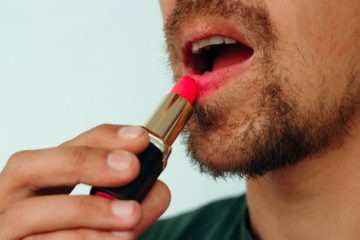
On September 2, 2021, the National Radio and Television Administration published a passage on improving the quality, organization, and ethics of entertainment and public tv shows. In point seven of the notification, the input of the derogatory slur “niang pao” led to global controversy, since the slang “niang pao” is used to target an effeminate male. There have been a few different speculations as to why this specific term was used.
Josh K. Elliot, a journalist from Global News interprets this enforcement as an act from China to become a country of stereotypical “macho men”, and also provides a generalized explanation for the unprecedented punishing of various public figures. Celebrities such as Zhang Zhehan who was featured in many recent Chinese tv shows and movies was wiped off of all Chinese social media platforms most likely due to a situation revolving around an infamous Japanese shrine that worshipped WWII war criminals. However, despite his known complication, Zhang Zhehan’s figure is now deemed as immoral, revolting, and unmanly.
“It is insulting for the guys being banned,” said Jessie K., a freshman at AISG. “It is unfair for them to be who they want to be.”
A Chinese state-owned newspaper, the GMW, published an article on August 27 criticizing the “niang pao” persona, calling it an “abnormal aesthetic standard”. The article first points out the upsurge of negative news surrounding highly repackaged “little fresh meat” (young, womanish man), stating that many of their behaviors are sugarcoated by brokerage agencies. The article also points out how some celebrities produce negative news of themselves publicity stunts in order to maintain gain attention and maintain public value.
“I think it really depends on the individual,” said Jerry L., a sophomore at AISG. “Since everyone has their own preferences on appearance and conduct.”
Wang Shuaishuai, a lecturer at the University of Amsterdam thinks that calling out to the so-called “sissy man” is China’s latest campaign against technology industries. Since the mid-2010s, private technology companies have started to launch private entertainment and shows. As this form of media became more popular, the state-owned television stations made less profit. Companies such as Tencent and Baidu launched their own tv shows such as “The Coming One”, “CHUANG 2021”, “Idol Producer”, and “Youth With You”, which feature young men dressed up in unisex clothing with a sizable amount of makeup. China seized the opportunity to enfeeble these companies by targeting the male celebrities which the enterprises feature, marking them as “effeminate”, “misleading”, and “immoral”.
The notification from China’s National Radio and Television Administration also greatly influenced online spaces such as “Douyin”, a video-sharing platform.